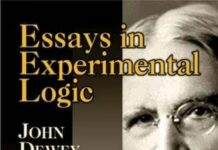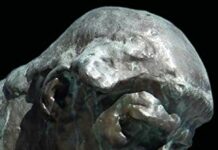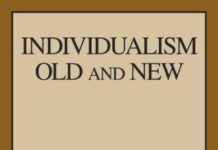
Ebook Info
- Published: 2012
- Number of pages: 129 pages
- Format: PDF
- File Size: 16.02 MB
- Authors: John Dewey
Description
This book was converted from its physical edition to the digital format by a community of volunteers. You may find it for free on the web. Purchase of the Kindle edition includes wireless delivery.
User’s Reviews
Reviews from Amazon users which were colected at the time this book was published on the website:
⭐John Dewey, as I’ve heard, was never comfortable with labels. Throughout his career he shifted from and to many rubrics: pragmatism, interactionism, instrumentalism, transactionism, experimentalism. Truth be told, all of these are present in “Reconstruction in Philosophy” and partly because of that, this is probably the best intro to Dewey available.Dewy has a bone to pick with traditional philosophy. Not only has it lost track with real, as opposed to academic, problems (anyone walking down the street can tell us this) but it never really was that good at depicting real questions and descriptions anyway. Take comcepts like Plato’s ideal forms and Kant’s a priori. Neither of these are teneble in any realm of experience; rather, they were a misguided quest to explain the permanance and stability of the world.Dewey’s book is an attempt to pull the carpet out from under their feet; science and inquiry using its methods shows us that the world changes and if anything, stability is something that is felt by us – not inherent in the world. Thus a prioris, ideal forms, seperation of the noumenal and phenouminal amongst other current ‘problems’ in philosophy – all based on the idea of permanant/transitory dichotomy – are not only wearing thin, but are fast showing to be irrelevant. From this, he builds the groundwork of a philosophy in between rationalism and empiricism. Taking from rationalism an admiration and recognition of reason’s power to direct action and combining it with empiricims fascination with experience, Dewey creates a philosophy that puts the spotlight not on one or the other, but on both as leading to and taking from eachother.The first chapter are a philosophical survey of how philosophy went wrong; particularly in Ancient Greek and early Christian philosophy (both having a love affair with absolutes outside of experience). The second chapter focuses on the mistakes when philosophers, like Francis Bacon, widened the chasm between the real and experiential and the ideal and rational.From here, Dewey proceeds piece by piece to show what was wrong and how to fix it by making clear tht scienctific inquiry (the equal interaction between subject and object) leaves no room for absolutes, forms or a prioris (or at least, not in any pragmatically useful sense). By extension, things like formal rules of logic above experience, non-experimentalism in moral or political theory and psychology that includes the individual without an equal part of the social; all of these become little more than unfounded but continually persisting glorifications.For the reader interested in Dewey, naturalism, instrumentalism or the implications of pragmatism, this is a great introduction. From here, I suggest Dewey’s “The Quest for Certainty” followed by “Experience and Nature”, topped off with “Human Nature and Conduct”.
⭐A decent if uneven collection of lectures by Dewey, spelling out his philosophy in the years subsequent to the First World War. Dewey is recognized today as one of the founding fathers of American Pragmatism, a philosophy that arose in the United States in reaction to the Hegelian and Idealist modes of philosophizing then current in Europe and in American academic circles. The pragmatists, claiming C. S. Peirce as their initial founding father and William James as their most eloquent spokesman, were ably represented by Dewey who even James seemed to defer to in his own works (Pragmatism, The Meaning of Truth). Dewey is best remembered today for his role in the philosophy of education but his basic thinking arose from his embrace of the pragmatic conception espoused by Peirce which makes truth and knowledge a function of what works for the knowing subject. This is sometimes oversimplified as the supposition that what works is true and what’s true is what works but that’s not a fair explanation of the pragmatic conception. As James points out in his book Pragmatism, true claims in this pragmatic sense are those which are seen to fit within larger conceptual/theoretical frameworks which prove themselves through application in the real world. It’s not a one-to-one correspondence of claim to fact-in-the-world but a holistic correspondence which depends on the systemic effectiveness of our interlocking beliefs and claims, some of which touch ground in the real world but some of which may not or may never actually do so. Dewey’s contribution to this is visible in the first lecture in this book in which he lays out his case for how human knowledge arises in a social context. He argues that knowledge is interactivity, activity of the organism in response to and proactively affecting its world. Rejecting the passive picture of human beings as recipients of information, he makes the case that information, the things we know, arises as part of the give and take of living and that this reaches a certain level in organisms like us.But that level, that capacity to conceptualize, itself develops in a social context, a function of community sharing of activity. Thus he lays out how human thinking changes with the change in cultural elements. Primitive humans, he argues, are concerned with gathering food and eating it and that, when not so engaged, they are mainly interested in entertaining themselves, in leisure in which imagination, stories and mythic motifs, develop and dominate. Their ideas are built around emotion and visual imagery, their interests devoted to sensation and the world they conceive leads naturally to activities which embody their thoughts about things. When modes of life change and settlements take hold, when life is redirected to working (farming, producing) from hunting and gathering, methods of thought and thinking change, too. Specialization leads to more concrete forms of thinking and ideas and beliefs take on a new cast. Dewey tells an interesting and convincing story about how we get from the mythic to the scientific worldview and points out, in the process, just how knowledge, understood as interactivity with our world and others in a communal environment, takes shape and builds toward what we are today.Some of the later essays are more turgid and redundant as he moves in these lectures from a pragmatic account of knowledge and knowing to applications in the realm of ethics and political theory. Dewey rejects what he takes to be the crassness of capitalism and excess individualism in favor of his communal picture of knowledge and human action. One interesting area of his thought occurs in one of the last essays where he tackles the problem of moral philosophy. For Dewey, that which is good is so only to the extent that it’s good for someone where being good for someone depends on its meeting specific needs that individual has.Such needs may vary from individual to individual (there are no fixed goods in Dewey’s view that exist independent of those who count them as good, no bottom line principles of action to which we must adhere). All our valuational choices, including the moral ones, will depend on who and what we are and what that entails for us in terms of actions. Goodness and badness is realized only in action not through contemplation or speculative theorizing, just as all knowledge is for him. Action comes first, not thought — for thought occurs only within the context of acting agents. Thoughts reflect the inputs our actions generate for us and how we react to them.Moral valuation is realized in the same fashion. We develop as living organisms, and thus know what we count as morally good, on the fly, in the course of acting in the world. Dewey utterly rejects the Platonic notion of goodness as an ideal form, an ideal standard against which our acts must be measured. The ideal of goodness we learn to hold is only a function of generalizing our many particular experiences. It has no distinct existence apart from those experiences. What then, for Dewey, counts as moral goodness? What is it that human beings ought to aim to achieve or obtain in order for their lives to be counted as good, as worthwhile?He rejects the idea of individual satisfaction as being the ultimate good towards which individuals must strive although he approves the utilitarian approach of shooting for the greatest good for the greatest number. What he objects to in the utilitarians is what they count as that good. He rejects the utilitarian supposition, then popular in his day, that goodness equates with pleasure or happiness and that the moral good consists of maximizing instances of one or the other of these across the human population. First, he rejects any idea that there can be a valuational bottom line, an intrinsic goodness to be sought by all human beings because this, he thinks, already assumes some ultimate form of the good, some platonic notion of an ideal to be realized in the particulars of our lives. On his pragmatic view there is no such ideal standard, not even in the natural sense of individual experiences like happiness or pleasure. What’s good is what works for the individual and that may be quite different than any particular notion of happiness or pleasure. What works will be that which advances the interest of the organism in question, an interest grounded in the organism’s successful continuance in the world.He rejects the notion of individual satisfaction, moreover, because he doesn’t see human beings as ultimately isolated individuals and argues, instead, that the self we are is only created and maintained in association with others, as part of a community of selves. As such, the utilitarian idea that the “intrinsic” good is maximal pleasure or happiness (or some equivalent) across a population of individuals is, he thinks, fundamentally mistaken. This leads to selfishness and, thus, bad outcomes for human beings in general, as it gives rise to rampant capitalism and greed, to a materialistic attitude which demeans the experience of human beings. Utilitarianism, he thinks, must lead to the sort of social outcome which is bad for human beings in the aggregate. In contrast to the error of individualism, he argues that what’s good for individuals is successful societies, i.e, those that consist of sound institutions which contribute to the progress of all the individuals that find their realization within those societies.His is an argument for a naturalistic account of goodness grounded in measurable human progress attained through effective social institutions which contribute to improvements in the human beings who are served by those institutions. Such progress includes scientific and technological advancements, but also the kind of individual cultivation that allows human beings in those societies to flourish because it increases their health and capacities for living more satisfying lives (improved aesthetic appreciation) with reduced suffering. It’s not a utilitarian calculus which totes up individual satisfactions that matter, in Dewey’s view, but an approach that aims at the continued enrichment and improvement of the social organism itself, that society of many individuals who take their individuality from their interconnections with their fellows, from their place within a robust, rewarding agglomeration of such institutions.Thus on this Deweyan view, what we call the “moral good” (the class of things that are right to do) will be those objectives and modes of behavior which most contribute to a better society, defined as one that enriches and supports human progress. Concern for others will be translated into avoidance of things like theft and telling intentional falsehoods, of causing others unjustified pain and, indeed, avoidance of any manner of behavior which causes others to have a worse life than they might otherwise have. Such concerns will be the basis of our moral claims and will inform our expectations of our social institutions. Actions that build and support such desirable institutions, and reject and discard those which do not serve this purpose, will be among those we count as “moral,” too.Dewey’s approach is purely naturalistic, since he rejects all notions of ideal states and otherworldly standards and directives. The real world is a practical one, pressing us to judge and act in accordance with the exigencies of each moment rather than to suppose our behaviors can be made to fit pre-existing codes and laws. Our values, the things we count right to do, will be discovered in the moment, in the nexus of the act and what’s acted on, of our interactions with the world and with others who share it with us. Each moment will present us with new opportunities to discover and realize the good things, the right things to do, but always without resort to some previously promulgated code whatever we suppose its provenance to be.And in each moment we create our values anew by living in the world and being part of it. Deweyan ethics ground our moral choices in our practical lives — but they do so in a way that recognizes the importance of the communal milieu in which we stand and which makes each of us individual human beings (for we only attain our individualization in the context of a group). In rejecting the classical ethical notions of means and ends, of intrinsic and extrinsic goods, of goods in the abstract at all, Dewey offers a piecemeal morality grounded in a general belief in the possibility, in the necessity, of human progress. Progress, on this view, is the ultimate goal of creatures like ourselves.Dewey’s is a kind of group ethic, favoring and rewarding the individual only by and through the group — as realized in the shared institutions in which individuals exist. It’s naturalistic in its refusal to grant otherworldly or supernatural status to the factors that underwrite the choices we make, and it’s scientific in that it acknowledges and supports the growth of human knowledge through respect for and development of the sciences. The good for human beings is, Dewey thinks, his or her continued existence (as it is for all beings) but continued in the most effective possible way: A way that nurtures and develops sound institutions which support and advance the condition of those individuals who have their membership in them. What’s morally good or right to do, for Dewey are thus just those things which favor those social institutions and practices best suited to advance (and enhance) the quality of the lives of human beings.Some of the middle lectures in this book are less satisfying because they lack a certain tightness of exposition. But if one is interested in getting a flavor of Deweyan pragmatism, in comparison with James’ psychologistic version, or in seeing how Dewey’s pragmatism presages modern progressive thought, this book’s a good place to start.
⭐Ok, by all means. thanks.
⭐A major work.
⭐good
Keywords
Free Download Reconstruction in Philosophy in PDF format
Reconstruction in Philosophy PDF Free Download
Download Reconstruction in Philosophy 2012 PDF Free
Reconstruction in Philosophy 2012 PDF Free Download
Download Reconstruction in Philosophy PDF
Free Download Ebook Reconstruction in Philosophy



